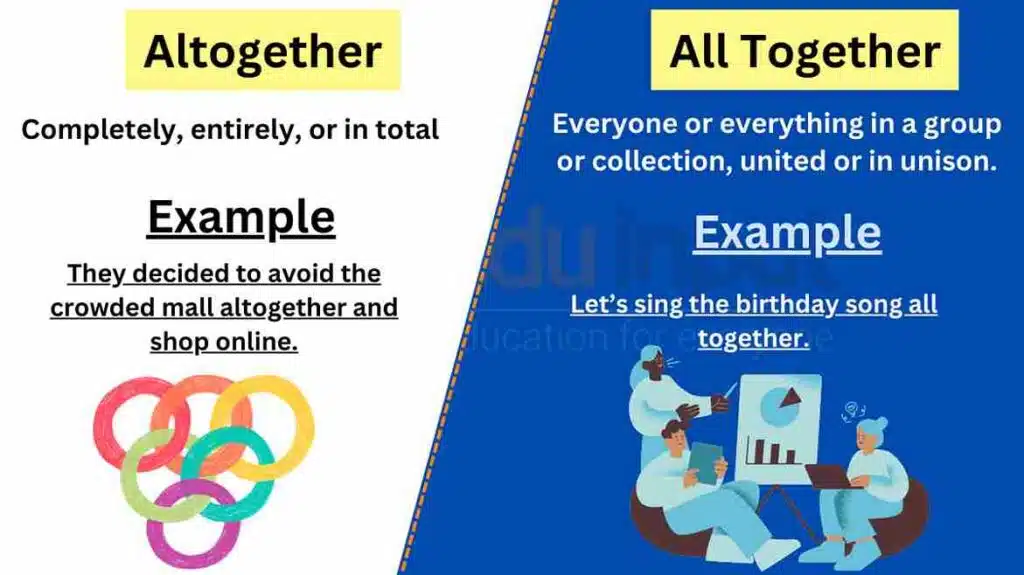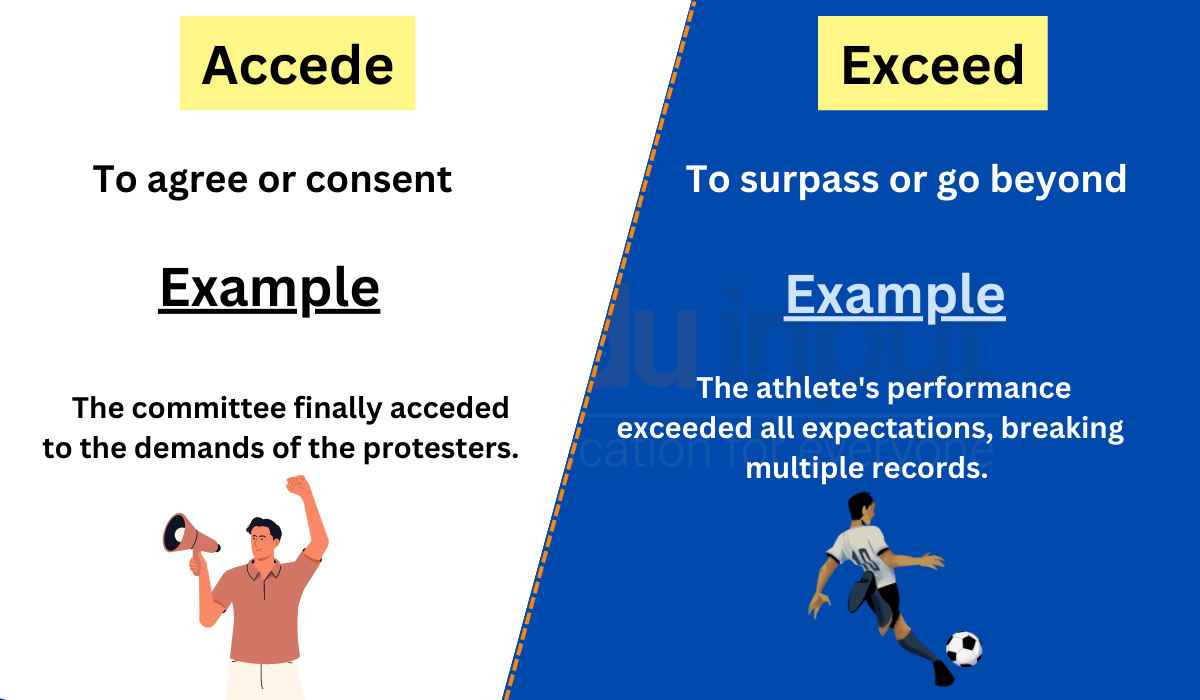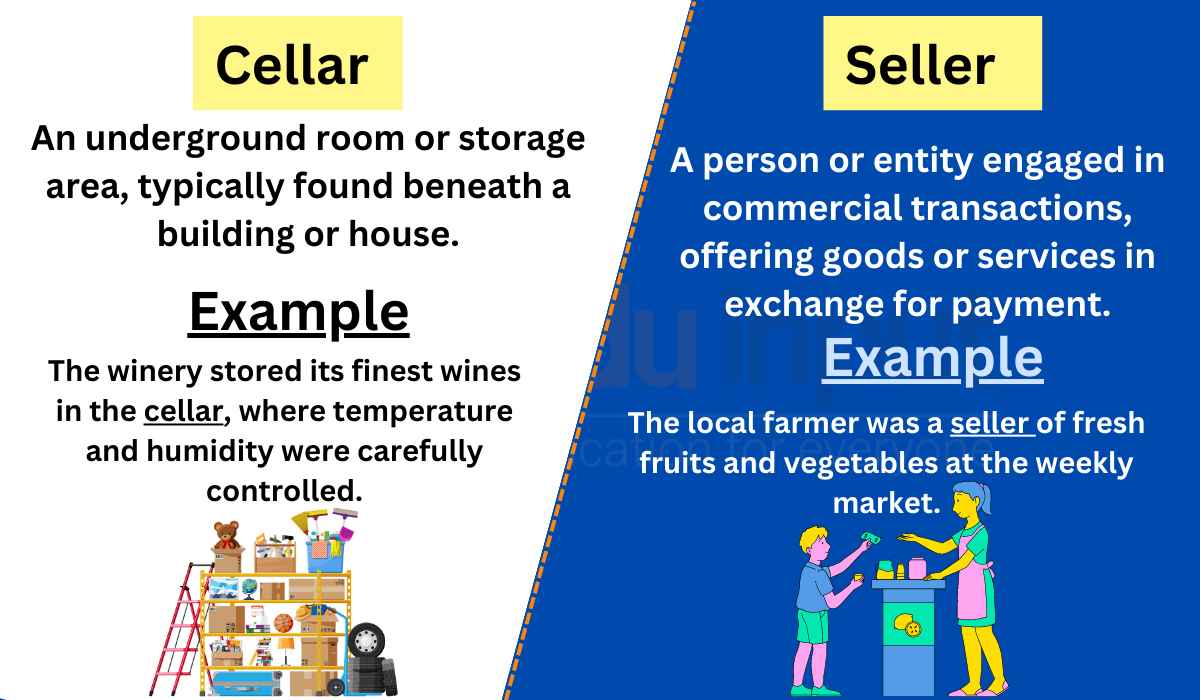Altogether vs All Together-Difference Between And Examples
In the English language “Altogether” and “all together” are two such phrases that often perplex English learners. In this article, we will unravel the distinctions between “altogether” and “all together,” exploring their definitions, usage, and grammatical aspects.

Meanings and Examples
Altogether Meaning
Altogether is an adverb. The meaning of altogether is completely, entirely, or in total.
Altogether Examples
a) The storm destroyed the house altogether.
b) I’ve decided to quit my job altogether.
c) She didn’t enjoy the movie; altogether, it was quite disappointing.
d) The concert was canceled altogether due to bad weather.
e) They decided to avoid the crowded mall altogether and shop online.
All Together Meaning
All together is a phrase. The meaning of all together is everyone or everything in a group or collection, united or in unison.
All Together Examples
a) Let’s sing the birthday song all together.
b) The team worked all together to achieve the common goal.
c) We need to gather all the ingredients together to bake the cake.
d) The students lined up and walked into the school all together.
e) They decided to tackle the project all together to ensure a coordinated effort.
Differences Between Altogether and All Together
| Criteria | Altogether | All Together |
| Meaning | Completely or entirely | Everyone or everything in a group |
| Part of Speech | Adverb | Phrase |
| Pronunciation | ˌɔːltəˈɡɛðə | ɔːl təˈɡeðə |
| Usage | Totality, entirety | Unity, collective effort |
Grammatical Aspects
As Noun
- Altogether: “Altogether” does not function as a noun.
- All Together: “All together” can function as a noun.
As Pronoun
- Altogether: “Altogether” is not used as a pronoun.
- All Together: “All together” is not a pronoun.
As Verb
- Altogether: “Altogether” does not have a verb form.
- All Together: “All together” is not a verb.
As Adjective
- Altogether: “Altogether” does not have an adjective form.
- All Together: The adjective form of “all together” is “all-together.”
As Adverb
- Altogether: “Altogether” functions as an adverb, modifying verbs or adjectives to convey a sense of completeness or entirety.
- All Together: “All together” does not function as an adverb.
Usage in a Paragraph
The family decided to skip their annual vacation altogether this year. Instead, they opted to spend quality time all together at home. They believed that being all together would create stronger bonds and foster deeper connections among family members. Altogether, it was a memorable and joyous time, filled with laughter and shared experiences. They realized that being together mattered more than any destination they could have visited.
Understanding the differences between “altogether” and “all together” is crucial for accurate and effective communication. “Altogether” functions as an adverb, representing completeness or entirety. On the other hand, “all together” is a phrase referring to everyone or everything in a group or united in action. By recognizing the distinctions between these phrases, we can convey our thoughts and ideas more precisely, ensuring clarity in our communication.







Leave a Reply